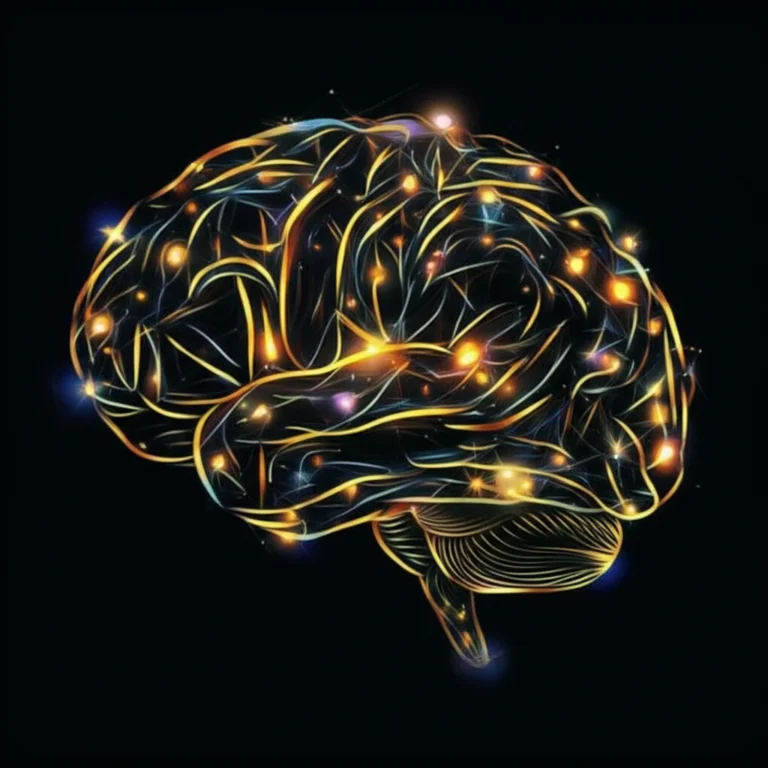Support our educational content for free when you buy through links on our site. Learn more
Is 103 IQ Good? Discover 7 Surprising Insights! 🤔

Have you ever wondered what it really means to have an IQ of 103? You’re not alone! Many people find themselves questioning the significance of their IQ scores, especially when they hear about the extremes of genius or the challenges of low scores. In this article, we’ll dive deep into the world of IQ, exploring whether a score of 103 is good, average, or something else entirely. You might be surprised to learn that your IQ score is just one piece of the puzzle when it comes to understanding your cognitive abilities and potential!
As we unravel the complexities of IQ, you’ll discover fascinating insights about intelligence, the limitations of IQ tests, and how your score can influence various aspects of your life. So, buckle up as we embark on this enlightening journey together!
Key Takeaways
- A 103 IQ is slightly above average, indicating strong cognitive abilities.
- IQ scores are determined through standardization and reflect a range of cognitive skills.
- Intelligence is multifaceted, encompassing emotional and practical intelligence beyond just IQ.
- Relying solely on IQ scores can be misleading; personal growth and development are equally important.
- Many successful individuals have average IQs, proving that potential is not limited to a number.
- Lifelong learning and cognitive exercises can help improve your IQ over time.
- Embrace your unique strengths and cultivate essential life skills for success.
For those looking to enhance their cognitive abilities, check out our recommended resources on IQ Test Preparation and explore books that can help you boost your brainpower! 📚
Table of Contents
- Quick Tips and Facts
- Understanding IQ: What Does a 103 Score Mean?
- How IQ Is Calculated: The Science Behind the Numbers
- How Intelligence Is Measured: Beyond the IQ Test
- Is 103 IQ Considered Average?
- The Pros and Cons of Having a 103 IQ
- Drawbacks of Relying Solely on IQ Scores
- Controversies Surrounding IQ Scores: Myths and Facts
- What Does It Mean to Have an Average IQ? Insights and Implications
- Real-Life Implications of a 103 IQ: Success Stories and Challenges
- The Takeaway: Embracing Your IQ Score
- Conclusion
- Recommended Links
- FAQ
- Reference Links
Quick Tips and Facts
- A 103 IQ is slightly above the average score of 100.
- IQ scores follow a bell curve, with most people scoring between 85 and 115.
- IQ tests measure cognitive abilities like problem-solving and reasoning.
- Your IQ score isn’t fixed and can change over time.
- IQ tests don’t capture all aspects of intelligence, such as creativity or emotional intelligence.
Understanding IQ: What Does a 103 Score Mean? 🧠
Let’s unravel the mystery of a 103 IQ score! First things first: congratulations! 🎉 A 103 IQ places you comfortably above the average IQ of 100. This means you’re likely adept at grasping new information, navigating logical puzzles, and connecting the dots in complex situations.
Think of it like this: if we imagine the entire population’s IQ scores as a giant bell curve (statisticians call this a “normal distribution”), you’re sitting pretty, slightly to the right of that bell’s peak.
What Your Score Says About You
A 103 IQ suggests that you:
- Have strong cognitive abilities.
- Excel in learning and problem-solving.
- Might find academic pursuits relatively engaging.
- Are likely to thrive in environments that challenge your intellect.
But remember, an IQ score is just one piece of the puzzle that makes you, well, you! It doesn’t define your worth, your potential, or your future success.
How IQ Is Calculated: The Science Behind the Numbers 🧪
Ever wondered how those seemingly magical IQ scores are calculated? 🤔 It’s not as mystical as you might think!
The Classic Approach: Mental Age vs. Chronological Age
In the early days of IQ testing, the formula was simple:
(Mental Age / Chronological Age) x 100 = IQ
- Mental Age: Determined by your performance on an IQ test compared to others in your age group.
- Chronological Age: Your actual age.
For example, a 10-year-old child who performs intellectually on par with the average 12-year-old would have an IQ of 120 (12/10 x 100).
The Modern Method: Statistical Standardization
Today, IQ scores are determined through a process called standardization. Here’s the gist:
- Large groups of people take a standardized IQ test.
- Their scores are plotted on a graph, forming a bell curve (remember that?).
- The average score is set to 100, with a standard deviation of 15.
This means that a score of 103 places you slightly above the average, within one standard deviation.
How Intelligence Is Measured: Beyond the IQ Test 🧭
While IQ tests provide valuable insights into cognitive abilities, it’s crucial to remember that intelligence is multifaceted.
The Many Faces of Intelligence
Here are a few types of intelligence that IQ tests don’t fully capture:
- Emotional Intelligence (EQ): The ability to understand and manage your own emotions and those of others.
- Creative Intelligence: The capacity to generate novel ideas and solutions.
- Practical Intelligence: “Street smarts” – the ability to navigate everyday challenges effectively.
Exploring Different Assessment Tools
If you’re interested in delving deeper into your unique cognitive profile, consider exploring other assessments, such as:
- Aptitude Tests: Measure specific skills and abilities, like verbal reasoning or mechanical aptitude.
- Achievement Tests: Assess your knowledge and understanding of a particular subject, like math or history.
Free IQ Tests™ offers a variety of resources to help you understand and enhance your cognitive abilities. Check out our Free IQ Tests, IQ Test Preparation, and IQ Test FAQ sections for more information.
Is 103 IQ Considered Average? 🤔
The short answer? Yes, an IQ of 103 falls within the average range.
Decoding the IQ Bell Curve
To understand why, let’s revisit the bell curve:
- 68% of the population scores between 85 and 115, considered the “average” range.
- Scores between 115 and 129 are considered “high average.”
- Scores of 130 or above are often classified as “gifted.”
So, while a 103 IQ is slightly above the mean (100), it’s still comfortably within the average range.
The Pros and Cons of Having a 103 IQ 👍 👎
Like any trait, having an average IQ comes with its own set of advantages and potential challenges.
Advantages:
- Solid Cognitive Foundation: You’re equipped with the mental agility to learn new things, solve problems effectively, and adapt to various situations.
- Relatability: Being in the average range means you’re likely to connect with a wide range of people, fostering strong social connections.
- Balanced Perspective: You can appreciate different viewpoints and approaches, leading to well-rounded decision-making.
Potential Challenges:
- Academic Pressure: While you’re capable of academic success, you might face pressure to excel in highly competitive environments.
- Career Choices: Certain professions, like theoretical physics or advanced mathematics, might require a higher IQ for optimal performance. However, countless other fulfilling and rewarding careers align perfectly with an average IQ.
Drawbacks of Relying Solely on IQ Scores ⚠️
While IQ tests offer valuable insights into cognitive abilities, it’s crucial to remember that they don’t paint the whole picture of your potential or worth.
The Importance of a Holistic View
Here’s why relying solely on IQ scores can be misleading:
- Limited Scope: IQ tests primarily measure logical-mathematical reasoning and verbal comprehension, neglecting other crucial aspects of intelligence like creativity, emotional intelligence, and practical skills.
- Cultural Bias: IQ tests can reflect cultural biases, potentially disadvantaging individuals from certain backgrounds.
- Not a Predictor of Success: While a high IQ can be an asset, it doesn’t guarantee success in life. Factors like perseverance, resilience, social skills, and emotional intelligence play equally significant roles.
Controversies Surrounding IQ Scores: Myths and Facts 🌪️
IQ tests have been surrounded by controversy since their inception. Let’s debunk some common myths and shed light on the facts:
Myth 1: IQ Tests Are Biased Against Certain Races or Ethnicities
Fact: While some early IQ tests exhibited cultural biases, modern standardized tests are designed to minimize such biases.
Myth 2: IQ Scores Are Fixed and Unchangeable
Fact: Your IQ score can change throughout your life, influenced by factors like education, experiences, and even your health.
Myth 3: A High IQ Guarantees Success in Life
Fact: While a high IQ can be advantageous, it’s not a guarantee of success. Factors like hard work, determination, social skills, and emotional intelligence are equally crucial.
What Does It Mean to Have an Average IQ? Insights and Implications 🤔
Having an average IQ is perfectly normal and doesn’t limit your potential in any way.
Embracing Your Unique Strengths
Instead of focusing solely on your IQ score, consider these empowering perspectives:
- Focus on Your Strengths: Everyone possesses unique talents and abilities. Identify yours and nurture them.
- Develop Essential Life Skills: Cultivate strong communication, problem-solving, and interpersonal skills to thrive in various aspects of life.
- Embrace Lifelong Learning: Never stop expanding your knowledge and skills.
Real-Life Implications of a 103 IQ: Success Stories and Challenges 🌟
Let’s explore how a 103 IQ might play out in real-life scenarios:
Success Stories:
- Thriving in a Variety of Careers: Individuals with average IQs excel in countless professions, including nursing, teaching, management, sales, and skilled trades.
- Building Strong Relationships: Strong social skills and emotional intelligence are often more critical than IQ in fostering fulfilling personal relationships.
Potential Challenges:
- Academic Pressure in Elite Institutions: Highly competitive academic environments might present challenges, but remember that success is about finding the right fit for your learning style and goals.
- Career Paths Requiring Exceptionally High Cognitive Abilities: Certain fields, like theoretical physics or advanced mathematics, might demand a higher IQ for optimal performance.
Remember: These are just examples, and countless individuals with average IQs achieve remarkable success in all walks of life.
Free IQ Tests™ offers insights into Famous IQ Scores to show that intelligence comes in many forms.
The Takeaway: Embracing Your IQ Score 🤝
Your IQ score is just one data point on the map of your potential. Embrace your unique blend of strengths, nurture your passions, and never stop learning and growing! 🌱
For those raising bright young minds, explore our resources on Children’s IQ Tests to support their cognitive development.
Conclusion

In summary, a 103 IQ score positions you slightly above the average, indicating solid reasoning and problem-solving skills. While IQ tests provide valuable insights into cognitive abilities, they are just one piece of a much larger puzzle. Remember, your potential is not limited to a number! Embrace your unique strengths, cultivate your emotional intelligence, and never stop learning.
Key Takeaways:
-
Positives of a 103 IQ:
- Above-average cognitive abilities.
- Strong problem-solving skills.
- Good adaptability in various environments.
-
Negatives:
- Potential academic pressure in competitive settings.
- Certain career paths may require higher cognitive abilities.
Ultimately, we confidently recommend embracing your IQ score as a starting point for personal growth rather than a definitive measure of your worth.
Recommended Links
- 👉 Shop IQ-Boosting Books:
FAQ

What is the average IQ score and how does it compare to 103? 🤔
The average IQ score is set at 100, with a standard deviation of 15. This means that approximately 68% of the population scores between 85 and 115. A score of 103 is slightly above average, indicating that you possess better-than-average reasoning and problem-solving abilities. This score suggests that you are well-equipped to handle many cognitive tasks effectively.
How can I improve my IQ score if it’s below 103? 📈
Improving your IQ score is possible through various methods:
- Engage in Lifelong Learning: Continuously challenge yourself with new subjects, skills, and experiences.
- Practice Cognitive Exercises: Engage in puzzles, brain games, and memory challenges that stimulate your mind.
- Stay Physically Active: Regular exercise has been shown to improve cognitive function and brain health.
- Get Adequate Sleep: Quality sleep is essential for optimal brain function and memory consolidation.
- Maintain a Healthy Diet: A balanced diet rich in omega-3 fatty acids, antioxidants, and vitamins can support brain health.
What are the benefits of having an above-average IQ score like 103? 🌟
Having an IQ score of 103 can offer several advantages:
- Enhanced Problem-Solving Skills: You may find it easier to navigate complex situations and develop effective solutions.
- Better Academic Performance: A higher IQ can facilitate learning and comprehension, leading to improved academic outcomes.
- Career Opportunities: Many professions value cognitive abilities, and an above-average IQ can open doors to a wider range of job opportunities.
- Social Connections: Individuals with average to above-average IQs often find it easier to relate to others, fostering strong social networks.
Can IQ scores like 103 be increased through practice and brain training exercises? 🧠
Yes, while IQ scores can fluctuate, engaging in brain training exercises and cognitive challenges can lead to improvements. Research suggests that:
- Cognitive Training: Programs designed to enhance memory, attention, and problem-solving skills can positively impact IQ scores.
- Neuroplasticity: The brain’s ability to adapt and change means that consistent mental challenges can lead to cognitive growth over time.
However, it’s essential to note that while you can improve cognitive abilities, the degree of change in IQ scores may vary from person to person.
Reference Links
- Verywell Mind: What is the Average IQ?
- IQ Tests: Understanding IQ Percentiles
- National Institutes of Health: ADHD and High IQ
- Stanford-Binet Intelligence Scales
- Wechsler Adult Intelligence Scale
Remember, your IQ score is just a starting point. Embrace your journey of growth and exploration! 🌈





